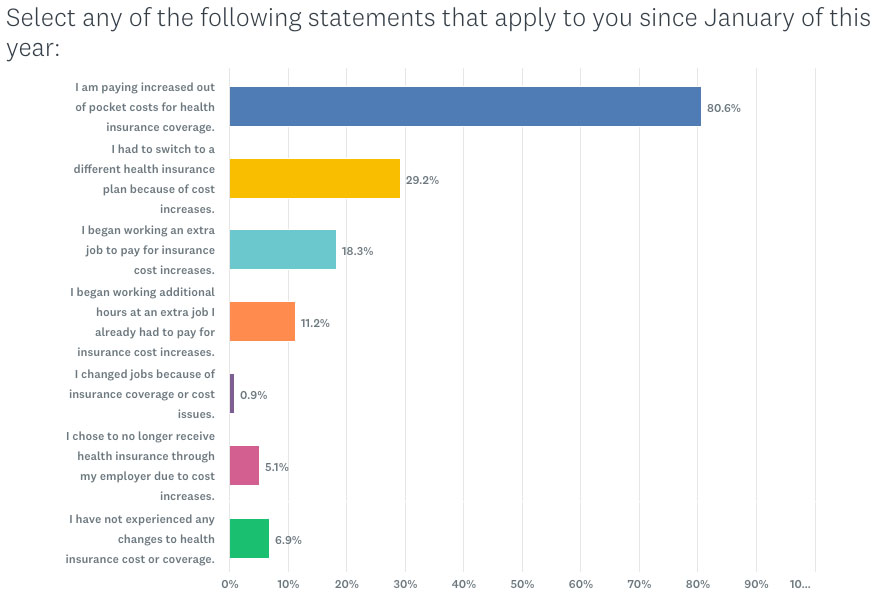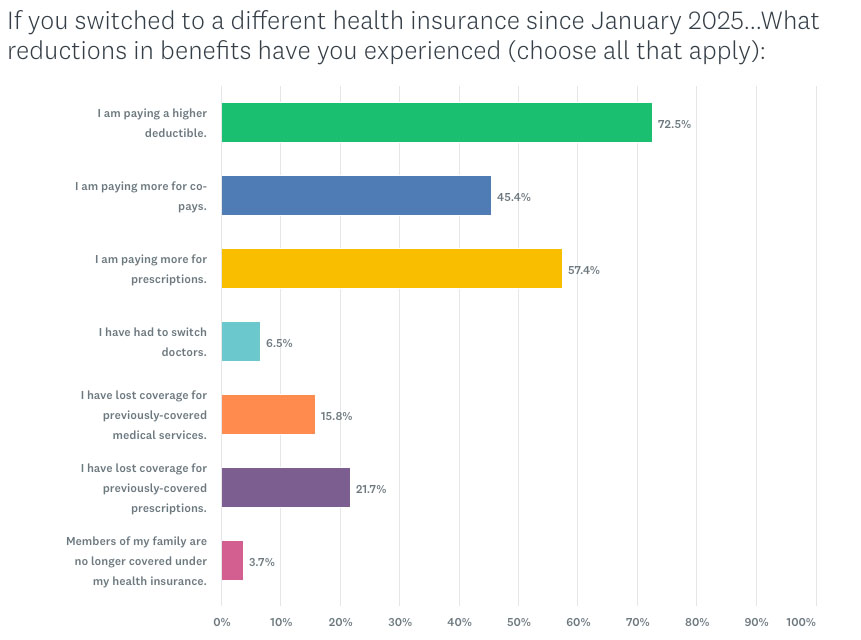Statewide survey: Average Michigan public school educator paying $2,400 more annually for health care
Survey results highlight need for House Bill 6058 to be signed into law without further delay
In a statewide MEA survey, 80% of Michigan public school educators who responded said they have been paying more out-of-pocket health care costs since January, with the average increase at $2,400 more per year. The survey results highlight the need for House Bill 6058 to be delivered to Gov. Gretchen Whitmer for her signature without further delay.
House Bill 6058 fixes Public Act 152, the state law passed in 2011 that limited the amount employers could pay toward health care costs for teachers, school support staff, and other public employees. The bill saves Michigan school employees thousands of dollars in health care increases by increasing the amount local school districts may spend on their employees’ health premiums.
House Bill 6058 was passed in the Legislature last December, but new House leadership in January refused to deliver the bill to Gov. Whitmer for her signature, as required by the Michigan Constitution. The fate of the bill now rests in the courts, with oral arguments in the Michigan Court of Appeals set for next Tuesday, Sept. 9.
“Michigan’s students thrive when their teachers and school support staff are healthy, supported and able to focus on educating our kids. But the rising cost of health care, combined with this outdated law that prevents school districts from covering a fair share of health care costs, makes it harder each year for educators to put food on the table,” said MEA President & CEO Chandra Madafferi, a teacher from Oakland County.
“State leaders must address this issue so we can attract and retain talented educators and ensure every child receives the high-quality education they deserve. That’s why we are calling on the state House leadership to take swift action to alleviate this severe financial pressure on educators and immediately send House Bill 6058 to the governor.”
Many educators shared their personal experiences as part of the survey.
“The stall of House Bill 6058 has had a massive detrimental impact on our family,” explained Kyle Saari, a Negaunee Public Schools teacher. “At the beginning of last year, I was excited because we finally received a 5% raise, but that was wiped out by a 12+% increase in health care costs. As a result, my take home pay became nearly less than it was without the raise.”
Emily Friedman, a Troy School District special education teacher, took on two additional jobs to cover her health care costs. Friedman also had to switch to a different health care plan due to cost increases.
“It is unfair that I commit so much to my community by educating the next generation while I struggle to pay for medical expenses for my own family,” Friedman said. “I teach children with special needs, and I have my own child with medical needs that I am increasingly paying more for.”
In the survey of more than 1,710 Michigan public school educators:
- 80% said they are paying more out-of-pocket for health coverage since January, with a $203 average monthly out-of-pocket increase. That works out to a total of more than $2,400 per year – and some respondents were seeing increases of more than $5,000 per year out-of-pocket.
-
- 29% said they had to switch health insurance plans because of cost increases. Most of this group is still paying more out-of-pocket for health care despite switching to a lower-cost plan. Among this group:
- 73% said they’re still paying higher deductibles.
- 57% said they are still paying higher prescription costs.
- 45% said they are still paying higher copays.
- 22% said they have lost previously-covered prescriptions.
- 16% said they have lost previously-covered medical services.
- 29% said they had to switch health insurance plans because of cost increases. Most of this group is still paying more out-of-pocket for health care despite switching to a lower-cost plan. Among this group:
- 18% said they had to start an extra job and 11% are working additional hours at an extra job they already had to pay for health insurance cost increases.
- On average, these respondents said they’re working 21 hours per month at an extra job just to pay for health insurance.
- 5% said they dropped health insurance altogether due to cost increases since January.
“I have mowed yards in my neighborhood to offset rising costs in health insurance and other costs,” said Sam Bultman, a Lansing Community College faculty member. “I also am a counselor and see a couple of clients each week to offset the same costs. The health insurance premiums are another blow in an already difficult time.”
“We have received record increases in school funding the last few years, for which we have successfully bargained wage increases to help recruit and retain good teachers,” said Andrew Richardson, a Saginaw Township Community Schools teacher. “This year, that increase has been eaten up by increased health costs so that some of our teachers are actually taking a cut. I’m waiting to see how many teachers we lose over the course of the year if this isn’t addressed.”
MEA members were invited to complete the survey online during July and August 2025. More than 1,700 educators, including teachers and support staff at the K-12 and higher education levels, completed the survey about their experience with health insurance costs since the unconstitutional holding of HB 6058 started in January.





